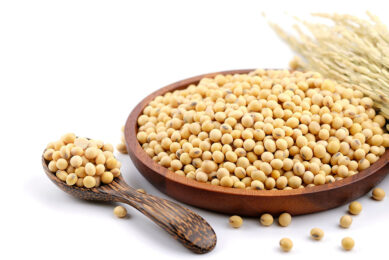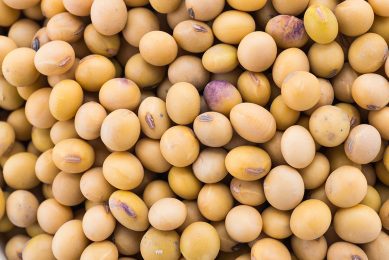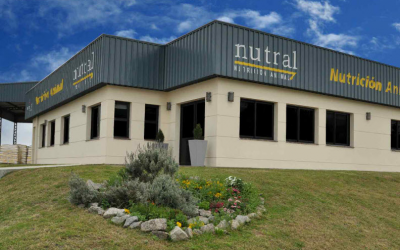Uruguay, country for sale
Changing to soybeans transforms a landscape from fields with a large number of different crops into a monoculture. Also the political landscape in a country can alter and even the ownership of a country can be threatened through the cultivation of soybeans. Such a scenario is happening in Uruguay at this very moment.
Uruguay and many other Latin American countries were in crisis at the beginning of this century. Because of this crisis since 2002 one-quarter of Uruguay’s arable land has passed into foreign ownership and the Argentineans now control half of all Uruguayan soybean production. Moreover, Uruguay’s most important agricultural sector, the meat industry, has come under control of Brazilian capital. The same has happened with rice, which is the country’s largest export crop. This can be noted from the analytical article "The soybean crop in Uruguay: The creation of a power block", 55 by Raúl Zibechi. He perfectly analyses what exactly is happening to Uruguay’s agriculture.
It could also happen to any country that is in crisis and has agriculture opportunities for multinationals. Below I want to present you in short the core of the article.
Since 2002 soybean acreage in Uruguay has multiplied fifteen-fold to 450,000 hectares. Some believe this could reach one million hectares with even more Argentine intervention since land in Uruguay is half the price of that in Argentina and the higher taxation imposed on agriculture products in Argentina will drive investors to its neighbour.
Cattle-farming is losing land to soybean production too. Arable land production yields between six and seven times that of cattle farming, due to high international soybean prices. Soybean farming is less labour intensive and has become an agriculture business where the managers see no difference between agriculture and finance. Risks are spread geographically and prices are fixed through Chicago Board of Trade futures. Soybean agriculture is not a major employer due to abundant use of herbicides and the complete mechanisation of the process. Soybeans occupy 60% of Uruguay’s arable land and this figure is still growing at the cost of sunflowers and maize.
Estimates show that 25% of land in Uruguay is in the hands of foreigners, to be specific, in the hands of six companies that are mostly foreign or related to foreign capital. In forestry half a million hectares are in Finnish, Spanish, American and Swedish groups. Brazilians control 40% of meat production. The whole chain of rice production is in Brazilian hands. And foreign investment is eyeing the dairy industry with large investments from both New Zealand and Brazil. The cattle sector is becoming highly concentrated in the hands of foreign capital: 72% of beef processing is in the hands of just 10 refrigeration plants; 88% of pig production is in four plants; and just two plants process 80% of all milk products.
The Uruguayan government is doing very little to deal with the issue and although legislation has been put in place for landowners to reveal the extent of foreign ownership, but this is relatively easy to avoid by hiding behind "Uruguayan partners".Nevertheless foreign investment can give an impulse to the national economy if it provides jobs and technical improvements, but unlike other crops soybeans are grown in a monoculture where for six months the land is bare. This lack of vegetation results in increased erosion from rainfall and negatively affects the fertility of the land and thus soybean farming can hardly be qualified as being sustainable – environmentally as well as economically.
Hence only 5% of the crop is processed in the country itself en 95% is exported as raw beans, which export is for 77% controlled by five main corporations, being ADM (21.5%), Cargill (18.6%), Grobo group (Argentina, 15%), Pérez Companc (Argentina, 11%) and Uruagri (a Dreyfuss subsidiary, 10.6%). In contrast to the export of nearly all raw soybeans, Uruguay is a net importer of flours, oils and industrial derivatives of the soybean.
The foreign power blocks have the support of the progressive governments in the region. The Brazilian Landless Peasants’ Movement entitles the alliance between governments and agri-business as "bread now, hunger for tomorrow". If you give these power blocks a finger today, they will be taking your whole hand tomorrow.












